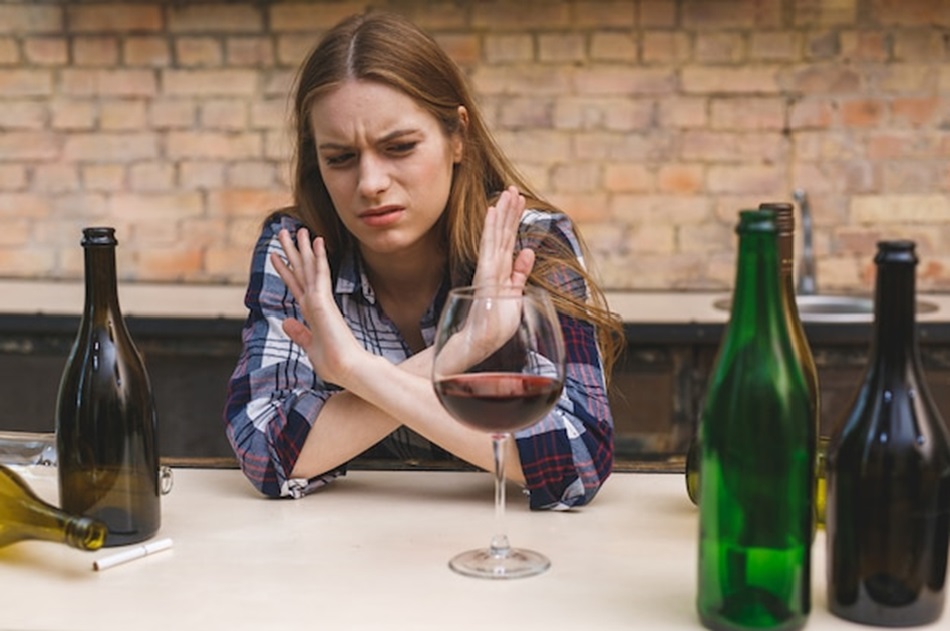Alcohol and Anxiety: A Troubling Link
Alcohol is a widely consumed substance used for various reasons, from celebrating milestones to simply winding down after a long day. Unfortunately, for many, consuming alcohol can have serious consequences—including an increased risk of mental health issues such as anxiety. This can be particularly troublesome if someone is already dealing with anxiety and turns to alcohol as a coping mechanism. In this article, we’ll look at the link between alcohol and anxiety, how to spot it in yourself or a loved one, and what you can do to reduce your risk.
The Link Between Alcohol & Anxiety
Consuming large amounts of alcohol over time can increase an individual’s risk of developing mental health issues such as anxiety. This is because excessive drinking affects the body’s chemical balance and leads to changes in brain chemistry. It also increases levels of stress hormones like cortisol, which can cause physical symptoms such as headaches and increased heart rate.
In addition, drinking too much can lead to sleep disturbances that further exacerbate anxiety symptoms. So, if you’re wondering, can alcohol cause anxiety? The answer is yes—it can, and it does.
Signs & Symptoms
It can be difficult to recognize the signs of alcohol-induced anxiety, as they may appear similar to those related to other anxiety disorders. Common symptoms include difficulty concentrating, feeling on edge or nervous all the time, irritability, and restlessness. Other indicators might includeinsomnia or disrupted sleep patterns, sweating, trembling or shaking hands, muscle tension, increased heart rate, and shortness of breath.
Risk Factors
There are several factors that increase a person’s risk for developing alcohol-related anxiety:
- Binge drinking—consuming large amounts of alcohol in one sitting—is especially risky. This is because it puts strains on both the body and brain chemistry, which can lead to changes in mood and behavior.
- Having a family history of anxiety or alcoholism.
- Suffering from other mental health issues such as depression or bipolar disorder.
- Experiencing stress, trauma, and/or life changes.
- Taking certain medications that may interact with alcohol, such as anti-anxiety medications or antidepressants.
How to Reduce Risk?
Now that you know, why does alcohol cause anxiety? There are a few steps you can take to reduce your risk. First and foremost, it’s important to limit or avoid drinking alcohol altogether if possible. If you do choose to consume alcohol, it’s important to practice moderation and never exceed the recommended limits for safe consumption. Secondly, you may also talk to an experienced healthcare professional foralcohol treatment in Fort Lauderdale to create a personalized plan for managing your symptoms. They can also help you identify and address any underlying issues that may be contributing to your condition.
Additionally, practicing mindfulness and other stress-relieving activities such as yoga, deep breathing exercises, and journaling can help you stay in control of your emotions. Finally, make sure to reach out to loved ones for support and be honest about how you’re feeling to ensure that you get the help you need. You may also check out how to stop alcohol cravings in more detail so that you can identify triggers and develop healthier coping mechanisms. Remember, you’re not alone—there are many resources and support systems available to help you.
To Wrap Up
We hope this article has provided some helpful insight into the link between alcohol and anxiety. Knowing why alcohol causes anxiety can help you make more informed decisions when it comes to alcohol consumption. Remember to practice moderation, and if you’re concerned about your drinking habits, seek help right away. You don’t have to go through this on your own. With the right support, you can move forward and make positive changes in your life.

